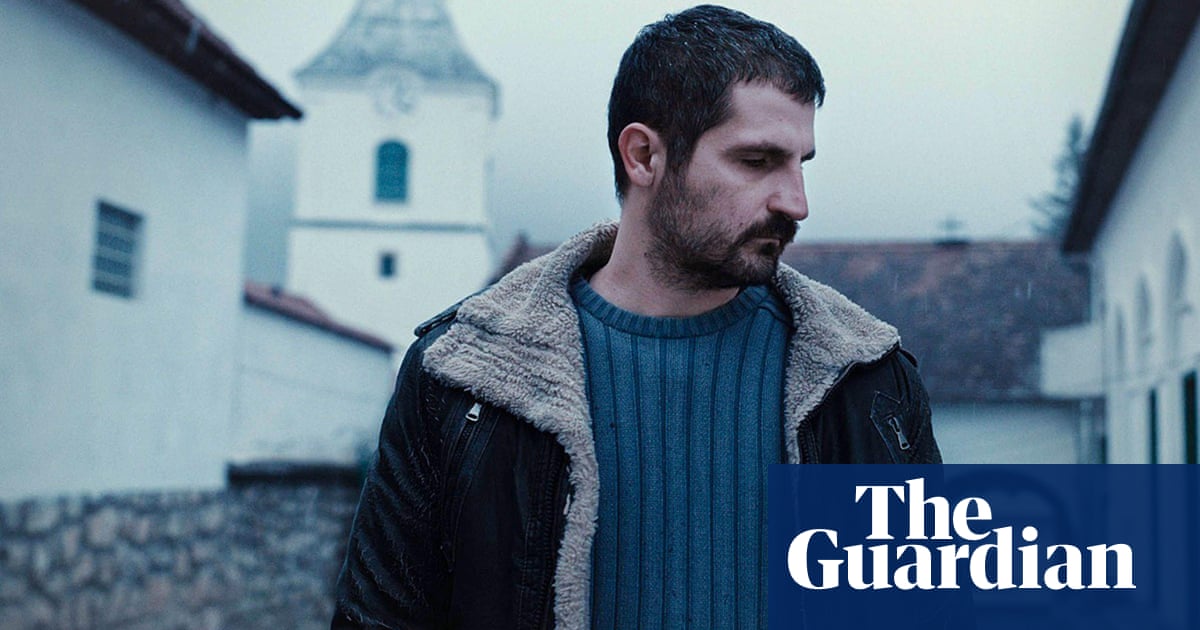
“Let us mind our words, the west is watching,” says the local mayor, hoping to calm a worked-up crowd of Transylvanian villagers. But the villagers don’t mind their words. Gathered in a packed cultural centre to vent their anger about three Sri Lankans hired by the local bakery, they are angry at everything: the closure of the nearby mine; the villagers who have left for better-paid jobs in Germany and the workload in those jobs that remain; the west’s supposed assault on the nuclear family; the hypocritical European Union. “We got rid of the gypsies,” one irate man in the crowd bellows, “and now we fight over foreigners?”
It’s just one scene from RMN, the new film by Cristian Mungiu, a Palme d’Or-winning director whose work has opened up his homeland Romania to the scrutinising gaze of western European cinema audiences. When Mungiu toured the film around European festivals last year, some people in the Q&A sessions afterwards assumed that the opinions of the villagers were also his.
“I had to remind them that these very politically incorrect opinions exist and have to be addressed somehow,” he says in a video call from Bucharest. “A lot of people think about these things but nobody speaks openly about it. And everybody is convinced that they are right, even the progressive side.”
RMN – an abbreviation for Mungiu’s native country – was inspired by a real-life incident in January 2020, when residents of the central Romanian commune of Ditrău boycotted a bakery over its use of South Asian guest workers, and 1,800 of them signed a petition calling for an end to all immigration to their region. After threats of violence, the Sri Lankans had to be housed in another village.
The incident received blanket media attention in Romania, not least because it showed the extent to which the ethnically Hungarian minority who led the boycott were ideologically aligned with Viktor Orbán’s far-right government in the neighbouring state.
“Some Romanians supported the villagers but most of them supported the foreign workers,” Mungiu says. “But the thing that triggered my interest was that even that part of the population that supported the foreign workers was as intolerant as people who are against the foreign workers – except they were intolerant towards the whole Hungarian minority.”
Mungiu says that while he didn’t want to grant the Hungarian minority excuses for their behaviour, he started to understand why they had acted the way they did after spending some time in the village and talking to everyone who was implicated in the case.
“The Hungarian ethnics are still trying to keep their communities closed off from the majority, they want to keep on having their religion, their education and their language – a habit which goes back to when Transylvania became part of Romania,” Mungiu says. “They never considered that they were intolerant against foreigners. They don’t give a shit about foreigners: it’s about not opening the community to anybody from anywhere else in the country.” When he went back to Ditrău with the finished film and showed it to the villagers, he says that many of them told him afterwards that they felt guilty.
The town hall scene, shot as a single static 17-minute tableau, is a trademark Mungiu masterpiece: utterly compelling and horrible to watch at the same time. Its unrelenting gaze makes it a twin to a scene in his breakthrough film Four Months, Three Weeks and Two Days, in which the female protagonist has to endure dinner party guests droning on about the spoiled youth of today while she worries that her friend may not survive the illegal abortion that is concurrently being performed on her in a dingy hotel room.
That film, which won the top prize at Cannes 16 years ago, had the comfort of being set in the Ceaușescu-era past, and of having a female lead whose seething anger at the injustice of her age reflected that of the audience. By contrast, the putative protagonist of RMN is Matthias (Marin Grigore), a perma-brooding hunk of menacing masculinity who returns to the village after headbutting his foreman at an abattoir in southern Germany and tries to rekindle an affair with his former lover, the bakery’s worldly manager Csilla (Judith Slate).
Matthias has the necessary physical presence to stand up in the town-hall meeting on behalf of Csilla and the Sri Lankan workers she has fought to hire, yet he fails them, lacking all conviction while the bigoted men around him are full of passionate intensity.
What makes Mungiu’s film especially sobering to western viewers is the anger at the European Union it reveals to us in the midst of a post-Soviet space that is often seen as one of the winners of globalisation. (Romanians have had the right to work in all EU countries without a work permit since 2014.) A French NGO worker, in town to count the population of bears in the surrounding hills, gets up to make the case for tolerance, but the villagers mock him as “Mr Êgalité-Fraternité”. Anyway, they ask, what’s the point of a European Union that funds biodiversity programmes but doesn’t pay to pave the roads?
I ask Mungiu how real that frustration with EU membership actually is. “I’m positive it goes way deeper’,” he says. “It belongs to this selfishness that people have of always wanting to have the best part of everything.
“Romania is still one of the countries with the most positive attitude to EU membership. They understand the benefits because freedom of movement made a huge difference. But people struggle to understand that there are people elsewhere in the world who are having the same problems we had 20 years ago. It’s not reasonable to expect to be treated well when you travel west and then treat people who come from further east like shit.”
There was, however, a genuine problem with miscommunication between eastern and western Europe, Mungiu says. “Our education taught us to love the west: we know its history, its geography, and we assumed that the west cared what happened here too. But when communism collapsed, we found out that our homelands is a hazy part of the continent that western Europeans don’t care that much about. They all think we speak Russian and that it’s freezing cold here.”
He continues: “We’re good enough to go over there to clean toilets and pick up food, but people look right through you and don’t consider you as individuals. These nationalistic and populist groups exploit that.”
The title of Mungiu’s film has a second meaning, “RMN” also being the French acronym for magnetic resonance imaging (MRI). The technique is used to monitor the tumour in Mathias’ father’s head, but also stands as a metaphor for a school of film-making that scans societies for malignancies growing underneath the surface.
The “Romanian new wave” of directors such as Mungiu, Cristi Puiu (The Death of Mister Lazarescu) and Radu Jude (Bad Luck Banging or Loony Porn) have become known for producing films that are as claustrophobic and anxiety-inducing as being slid into an MRI tunnel. In fact, RMN delicately balances an austerity of style with moments of emotional tenderness and, most importantly, black humour. “We have always been a peaceful community, with no ethnic conflicts since the 90s,” the mayor of Ditrău says as he opens the town hall meeting – but when someone from the back chimes in with “Minus that murder eight years ago”, we may as well be in the Springfield of The Simpsons.
Mungiu’s vision for the future of Romania is not wholly bleak, but his view of the future of his own medium may be. He recently wrote and published his first book, which is about his grandmother and the 1940 Russian invasion of what was then Romania and is now Moldova. But he’s not sure he will ever make it into a film.
“To be honest, I am trying to understand where cinema is going. I cannot just keep on making movies until I understand if people still want to watch them in theatres or not, and if they want to watch content or want to watch films, and if they want to be entertained or also want to be challenged.”
Does he think audiences still want to be challenged? “No, I don’t think they do. I think the amount of people who wish to spend a couple of hours in a cinema in which they don’t just relax but also use their minds is shrinking to a very small minority. And the only thing that we can use digital platforms for is to coagulate these scattered people into a small group that could be relevant.
“But we will see”, he says before he hangs up. “If we meet again, it’ll be because it’s possible.”












